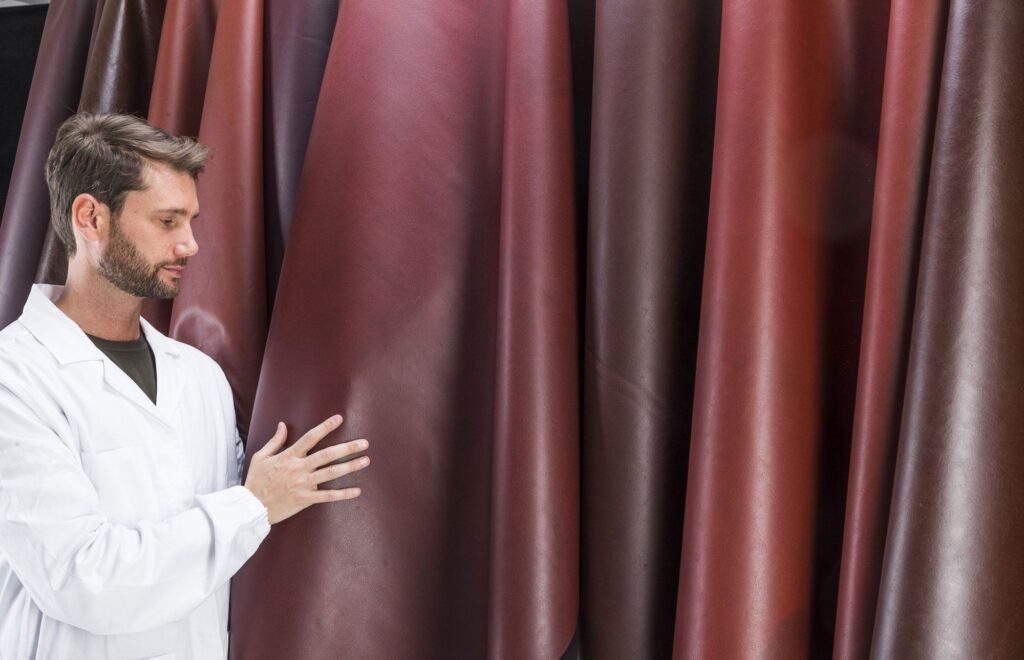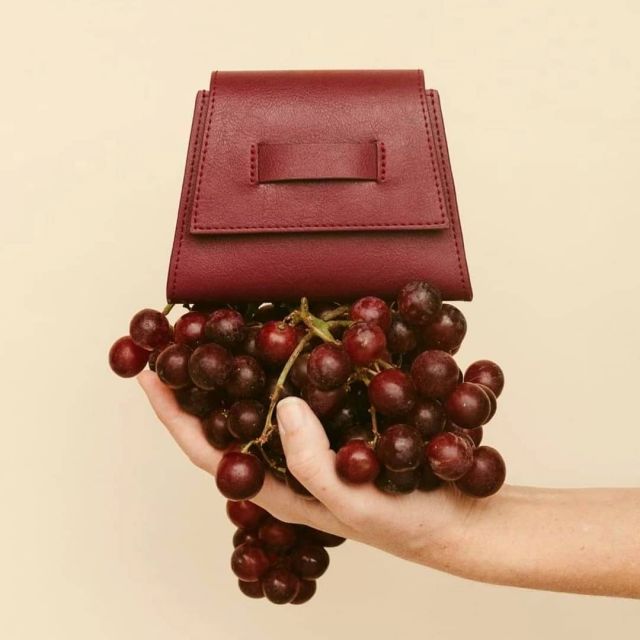Vegea is dedicated to researching and producing sustainable materials from biopolymers as an alternative to leather for the textile company. Their fabric, wine leather, has similar properties to leather but is much more eco-friendly. Unlike traditional leather, wine leather does not require a huge amount of water during its production. Not only does it reduce water footprint, but it also reduces the use of toxic chemicals and heavy metals in the tanning process. Since leather is often imported from low-resource countries with unsafe working conditions, it regularly exposes many leather workers to toxic chemicals, seriously damaging their health. But with the utilisation of Vegea’s leather, such a situation can be addressed.

Who would have thought grape by-products could be an alternative to leather?
Wine is an exquisite beverage that is produced in billions of litres around the world each year. This automatically results in an enormous quantity of by-products, such as grape stalks, skins, and seeds. Still rich in nutrients, the by-products are used as fertilisers and animal food or discarded. But recently, the by-products were soon to become a solution of one of its kind.
Italian architect and furniture designer Gianpiero Tessitore collaborated with the University of Florence and other research institutes to find a sustainable material to use in place of traditional upholstery materials such as animal or artificial leather. This research led them to analyse the characteristics of various plant fibres. After numerous experiments, Francesco Merlino, an environmental technician at the University of Florence, found that by-products of grapes can make a fabric that is very similar to that of leather.
Tessitore, later on, patented the production process in 2016 and established a company, called Vegea, in partnership with Merlino.
This type of eco-friendly leather is also a solution to hunting and poaching animals for their exotic skin. With the “wine leather” animals like snakes and crocodiles can be saved from being bred, killed, and converted into accessories or décor products to be sold commercially.
Vegea’s wine leather is an impressive addition to the fashion industry, as we can use it for making clothes, shoes, bags, and accessories. We could also use it for upholstery and car seat covers. The company is already working with different textile companies to develop various kinds of materials of different weights, strengths, elasticity levels, finishes, and textures.
The company has returned to the lab and is trying to come up with other ways of sustainably transforming agricultural biomass waste into other useful products and bringing them back into the value chain.
Such innovations prove that a sustainable way of industrial production is possible while encouraging conversion to and adoption of a more environmentally conscious style of consuming industry products for the people.
– Akansha Jain

